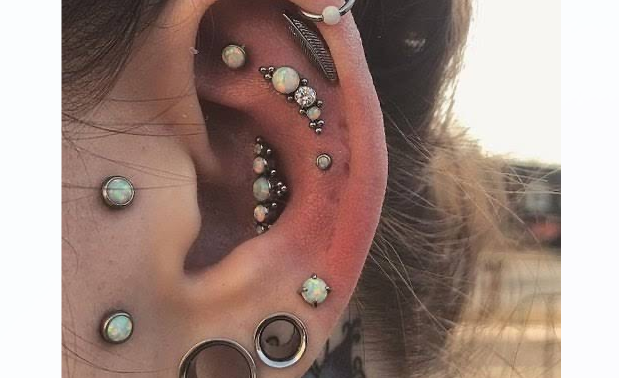By Peter Omopo
Body piercing, once seen mainly as a fashion statement, is taking on deeper meanings for many young people in Lagos who view it as a form of self-expression, identity, or even therapy.
From nose and navel rings to tongue and ear studs, piercings are now part of personal narratives that reflect beauty, confidence, and sometimes rebellion. But while some embrace the trend, others continue to face backlash in workplaces and social spaces where piercings are seen as unconventional.
Pamela Oko, a 20-year-old student, told the News Agency of Nigeria that her piercings made her feel beautiful and comfortable in her skin.
“It makes me feel comfortable,” she said.
For 23-year-old salesgirl Bimbo Adeola, the decision was purely aesthetic.
“It enhances my appearance and that is why I embrace the trend,” she said.
Others connect their piercings to career demands. Up-and-coming musician, Jonn Steven, popularly known as “Siifa,” said piercings were part of the entertainment industry’s image.
“My manager told me to get piercings, tattoos, and plait my hair to look trendy, so I did that. Once anyone sees you in all that, they would know what you are into,” he explained.
Some see piercings as confidence boosters. Hairdresser and make-up artist, Amira Ogundele, 29, described her nose ring as her favourite.
“It makes me feel confident about myself and my abilities. What a lot of people see as a trend can actually be of big importance,” she said.
But opinions remain divided. Music producer Peter Odibo, 33, argued that piercings should not affect professional or social perceptions. “No, it does not influence the social or professional view,” he maintained.
A different experience was shared by teacher Eno Bassey, 34, who said his sister lost a sales job over her piercings. “The first place she got a job, she was told to remove them, and she rejected the job,” he said.
For Bassey, however, piercings remain a personal choice. “One can be intelligent, outspoken, and still have a piercing. It should not be a barrier to career or friendship,” he added.
Music manager and social commentator, Alex Uwem, urged society to rethink its biases.
“Body modifications, including tattoos and piercings, are not just decorations. For some, it is fashion, but for others, it is therapy and self-expression,” he said, warning against stigmatization.
As the debate continues, what is clear is that behind every stud or ring lies a story—of style, confidence, pain, or resilience—that goes far beyond fashion.

